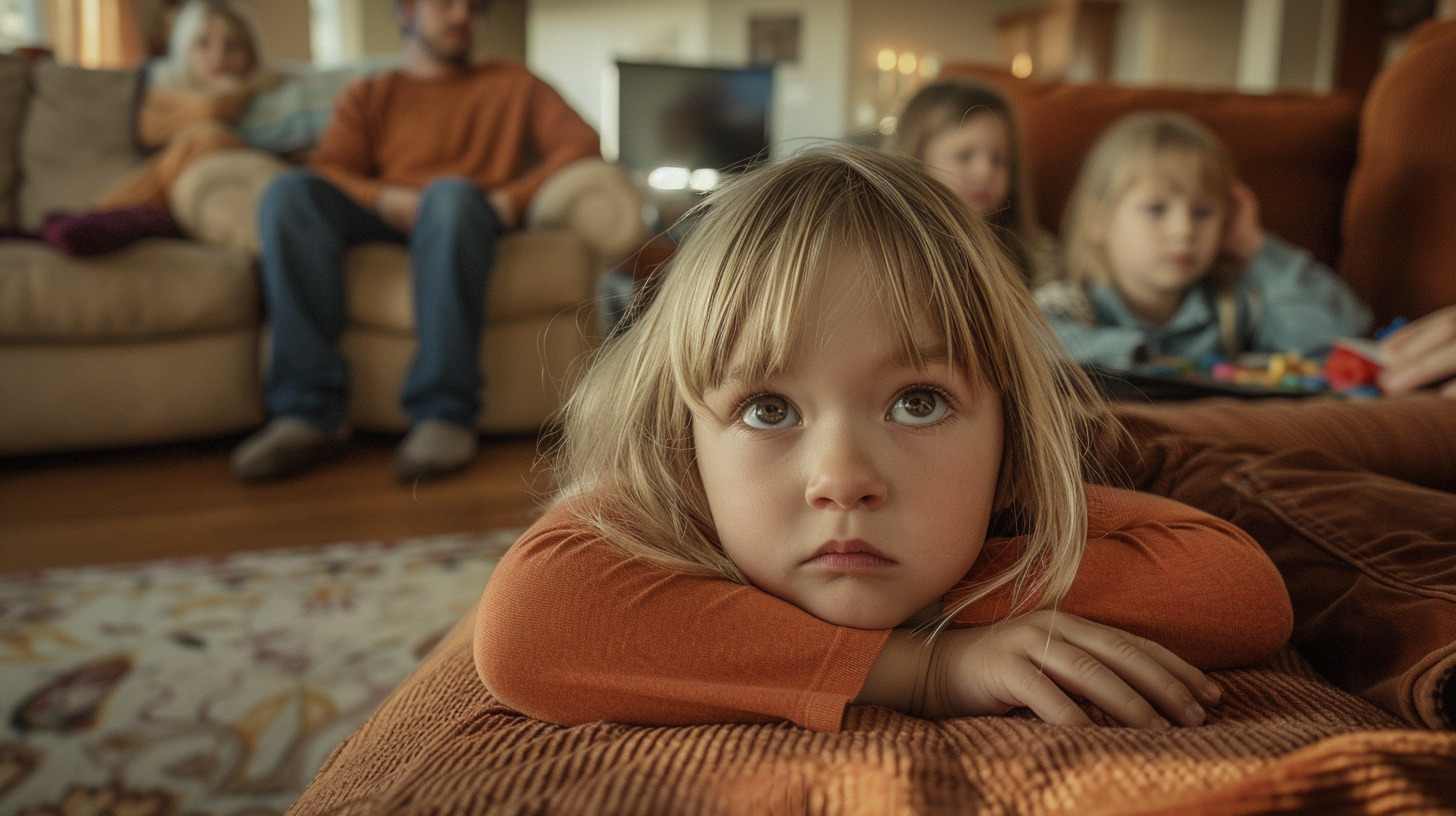Written by: Amanda Phillips
As long as I can remember, I was always some form of sick. My stomach would always ache, and I had symptoms no one could ever explain. I thought something was wrong with me, but the worst part? The people who should have believed me, my doctors, didn't seem to. Sometimes I wondering if my own parents did. They didn't not care; they just didn't understand. Every doctor's visit became an exercise in futility as I tried to explain what I was feeling, and nothing would show on the X-rays. Every time, it was always the same thing from the doctors: "It's just gas," or "It's nothing serious." To me, it felt like this was just normal, but it really wasn't.
Feeling Like I Was Being Punished
As a child, I could not make sense of this and why it was happening. I had three siblings, who seemed normal and healthy. The stomach pain would just not alleviate, and my little mind kept working out why it happened. I began to believe that this must all be part of some punishment. Punished for not liking fruits and vegetables as a child. Punished for something I did not even understand. That's the thing with being sick as a kid—you haven't developed those verbal, cognitive tools to explain or process it, so you internalize it in all of the worst possible ways.
Living with Guilt
The physical pain was visible; the guilt I carried couldn't be so easily seen. I felt guilty about everything: guilty for being sick, guilty for becoming such a problem for my parents. I knew the cost of my illness to them, not just in terms of emotional energy but in actual money. I knew I felt guilty for each doctor's visit, for each test showing nothing, and for each medical bill that would come in the mail. Just a kid at the time, I already felt like a load too much to handle.
I remember thinking, "If only they could see it on the X-rays, then they'd believe me." But nobody was able to see what I could feel. This left me in a constant state of self-doubt: was this all just in my head? Was the pain even real? Was this normal, does everyone feel this level of discomfort?
The Mental Toll of Chronic Illness on a Child
Individuals who have grown up as ailing children suffer not only in their bodies but also in their minds and emotional states. I grew up anxious, and uncertain. It wasn't until I finally began to understand why I was sick, a decade later, that I was past that no one would ever believe me. Terrified to be labeled as that "difficult" child or "complainer," this made me pull further away and say nothing. And, pretty soon, I was that kid who didn't want to be a bother, even when I was in agony. I walked around half my senior year in pain, with fevers almost nightly.
As I got older, I realized I wasn't the only child feeling that way. Really, chronic illness in children is more common than one might imagine, but it's often dismissed because kids can't always describe symptoms the way adults can. And when they aren't believed, it adds layers of emotional pain atop the physical suffering. Feeling like you're a burden to the people who love you, who are supposed to be protecting you, leaves scars that last into adulthood.
What Parents and Children Can Do Differently Today
Now, in retrospect, I can see where things might have gone differently, not just for me but for other kids in similar situations. If you are a parent of a chronically ill child today, or if you are the child who feels misunderstood, there is a way to break the cycle of guilt and not knowing what to believe.
- Believe the child: Even though their symptoms may not make any sense, or not be reflected in tests, their pain is real. When a child is believed, much of the emotional burden they carry is alleviated. They won't feel the need to prove they're sick.
- Open and honest is always good: Encourage your child to express what they're feeling, even if they do not have the words for it yet. Ask questions and then listen without judgment; let them have time to discuss symptoms, fears, and frustrations. Let them know that it is OK not to be OK and it is OK to ask for help.
- Assure them: They are not a burden. It's easy for parents to get wrapped up in the stress of medical appointments, treatments, and costs, but it's important to reassure your child that they are loved and supported no matter what.
- Build a support network: Help your child connect with others who understand their experience. Whether through school, community groups, or online chronic illness communities, finding peers who share similar struggles can alleviate feelings of isolation.
- Empower them: Give children a sense of control over their care. Include them in discussions with doctors, help them track their symptoms, and involve them in decisions where possible. This fosters a sense of ownership over their health and teaches valuable self-advocacy skills.
Conclusion: I May Not Have Looked Sick, But I Was
As a child, I lacked both the words and courage to explain what had happened to me. I lacked that support network that exists virtually today. We can make the difference for the next generation of kids living with chronic illness: believe them, support them, and above all, remind them they are never a burden.
I may not have looked ill from the outside, but inside, I was. And now, as founder of BeWell, my mission is to make others feel seen and understood on their journey of living with chronic illness. Together, we can create a world where no child has to feel guilty for being sick.




Coping with Sensory Overload When You Have a Chronic Illness
Advocating for Yourself within the Health Care System